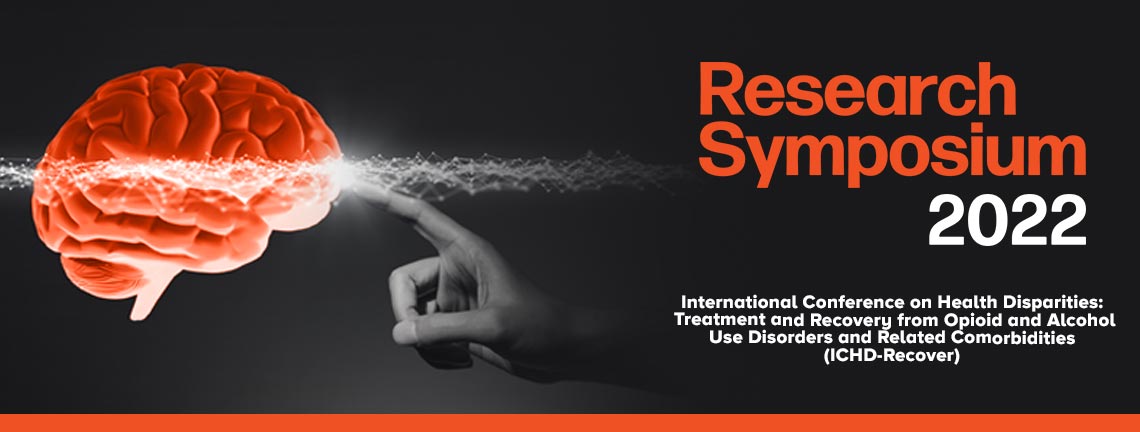
Talks
Presenting Author Academic/Professional Position
Community Partner
Presentation Type
Oral Presentation
Discipline Track
Patient Care
Abstract Type
Case Report
Abstract
Thyroid storm, an exaggerated manifestation of thyrotoxicosis, is a rare and life-threatening endocrine emergency. Physical and emotional stressors can precipitate thyroid storm in patients with underlying thyrotoxic conditions. Patients present with cardiac, GI and CNS dysfunction. The Burch-Wartofsky point scale predicts the likelihood of thyroid storm based upon the presence of these CNS, GI, and cardiovascular symptoms along with thermoregulatory dysfunction. A score of 45 or greater on this scale is indicative of thyroid storm. Treatment of thyroid storm includes a beta blocker, a thionamide, iodine solution, a glucocorticoid, and a bile acid sequestrant.
Thyroid storm is a recognized cause of secondary psychosis. Though psychosis due to thyrotoxicosis was first reported in the literature in 1840, few cases have been reported since that time. The most common symptoms of psychosis in these patients include mania, paranoia, hallucinations, and delusions. Abnormal vital signs such as tachycardia, hypertension, and an irregular pulse can help distinguish secondary from primary psychosis. If thyrotoxicosis is a suspected cause of psychosis, then TSH, thyroxine, and thyroid antibodies should be measured. Treatment of the underlying thyrotoxicosis is curative.
We present the case of a 28-year-old female with a several psychosocial stressors that presented to the emergency department with symptoms of a manic episode. Work-up included CBC, CMP, CSF studies, HIV panel, urinalysis, UDS, salicylate levels, urine drug screen, K2, Spice, LSD, lead level, Head CT, and Brain MRI. All tests were negative or within normal limits. The patient was initially started on benzodiazepines and then switched to an antipsychotic. After discontinuation of benzodiazepines, the patient's heart rate increased from 110-150s with sinus tachycardia. TSH was
In conclusion, thyroid storm should be listed as a differential in patients presenting with psychosis and abnormal vital signs.
Recommended Citation
Wagner, Richard G. Jr; Appareddy, Shyama; Sheikh, Khalid; Garcia, Laura; Zarate, Nayeli; and Vergara, Nancy Marilyn, "A Case of a Reversible Cause of Psychosis: Thyroid Storm" (2023). Research Symposium. 21.
https://scholarworks.utrgv.edu/somrs/2022/talks/21
Included in
A Case of a Reversible Cause of Psychosis: Thyroid Storm
Thyroid storm, an exaggerated manifestation of thyrotoxicosis, is a rare and life-threatening endocrine emergency. Physical and emotional stressors can precipitate thyroid storm in patients with underlying thyrotoxic conditions. Patients present with cardiac, GI and CNS dysfunction. The Burch-Wartofsky point scale predicts the likelihood of thyroid storm based upon the presence of these CNS, GI, and cardiovascular symptoms along with thermoregulatory dysfunction. A score of 45 or greater on this scale is indicative of thyroid storm. Treatment of thyroid storm includes a beta blocker, a thionamide, iodine solution, a glucocorticoid, and a bile acid sequestrant.
Thyroid storm is a recognized cause of secondary psychosis. Though psychosis due to thyrotoxicosis was first reported in the literature in 1840, few cases have been reported since that time. The most common symptoms of psychosis in these patients include mania, paranoia, hallucinations, and delusions. Abnormal vital signs such as tachycardia, hypertension, and an irregular pulse can help distinguish secondary from primary psychosis. If thyrotoxicosis is a suspected cause of psychosis, then TSH, thyroxine, and thyroid antibodies should be measured. Treatment of the underlying thyrotoxicosis is curative.
We present the case of a 28-year-old female with a several psychosocial stressors that presented to the emergency department with symptoms of a manic episode. Work-up included CBC, CMP, CSF studies, HIV panel, urinalysis, UDS, salicylate levels, urine drug screen, K2, Spice, LSD, lead level, Head CT, and Brain MRI. All tests were negative or within normal limits. The patient was initially started on benzodiazepines and then switched to an antipsychotic. After discontinuation of benzodiazepines, the patient's heart rate increased from 110-150s with sinus tachycardia. TSH was
In conclusion, thyroid storm should be listed as a differential in patients presenting with psychosis and abnormal vital signs.

